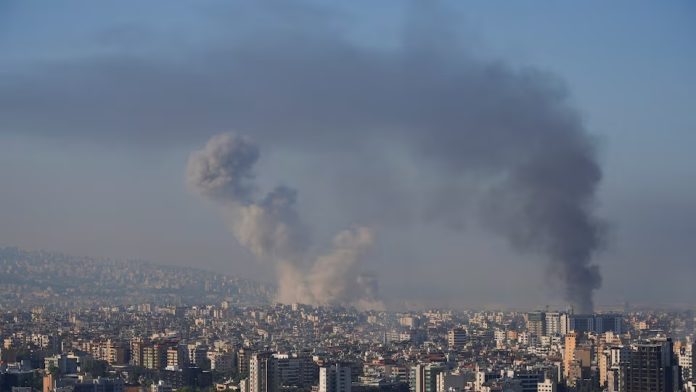The potential successor to the slain Hezbollah leader Sayyed Hassan Nasrallah has been unreachable since Friday, according to a Lebanese security source on Saturday, following an Israeli airstrike that reportedly targeted him.
In its campaign against the Iran-backed Lebanese group, Israel conducted a major strike on Beirut’s southern suburbs late on Thursday. Axios cited three Israeli officials as saying the strike targeted Hashem Safieddine in an underground bunker.
The Lebanese security source and two other Lebanese security sources stated that Israeli strikes since Friday in Dahiyeh, a residential area and Hezbollah stronghold in southern Beirut, have prevented rescue workers from searching the site of the attack.
Hezbollah has not made any comments regarding Safieddine yet.
The potential loss of Nasrallah’s rumored successor would be another setback for Hezbollah and its supporter, Iran. Israeli strikes across the region over the past year, which have sharply accelerated in the past few weeks, have significantly weakened Hezbollah’s leadership.
Israel extended its conflict in Lebanon on Saturday with its first strike in the northern city of Tripoli, a Lebanese security official said. Additionally, more bombs hit Beirut suburbs, and Israeli troops launched raids in the south.
Israel has started a heavy bombing campaign in Lebanon and has sent troops across the border in recent weeks. This comes after almost a year of back-and-forth fighting with Hezbollah. Previously, the fighting had mostly been confined to the Israel-Lebanon border area, alongside Israel’s year-long conflict in Gaza against the Palestinian group Hamas.
Israeli military spokesperson Rear Admiral Daniel Hagari stated that Israel had killed 440 Hezbollah fighters in its ground operations in southern Lebanon and destroyed 2,000 Hezbollah targets. Hezbollah has not released any death tolls.
Israel aims to facilitate the safe return of tens of thousands of citizens to their homes in northern Israel, which have been bombarded by Hezbollah since October 8th.
The Israeli airstrikes have eliminated much of Hezbollah’s top military command, including Nasrallah in an air raid on September 27th.
CIVILIAN DEATHS, DISPLACEMENT
The Israeli attack has also resulted in the deaths of hundreds of ordinary Lebanese, according to Lebanese officials, and has caused 1.2 million people – nearly a quarter of the population – to flee their homes.
Lebanon’s Health Ministry reported that Israeli strikes had resulted in at least 25 deaths and 127 injuries the previous day.
The Lebanese security official told Reuters that a strike on a Palestinian refugee camp in Tripoli on Saturday resulted in the deaths of a member of Hamas, his wife, and two children. Media affiliated with the Palestinian group reported that the strike killed a leader of its armed wing, identifying him as Saeed Atallah.
The Israeli military did not immediately comment on the strike on Tripoli, a Sunni Muslim-majority port city that its warplanes also targeted during a 2006 war with Hezbollah.
It was reported that Israel had killed two Hamas members operating in Lebanon, but did not specify the location of the killings. There was no immediate comment from Hamas. Meanwhile, Israel has been carrying out nightly bombardments in Dahiyeh, which has resulted in significant destruction of the residential area. On Saturday, smoke could be seen billowing over the region, indicating the extent of the damage. In northern Israel, air raid sirens prompted people to seek shelter due to rocket fire from Lebanon. Hezbollah claimed responsibility for firing missiles at what it referred to as the “ATA company for military industries near Sakhnin base”, in close proximity to the city of Haifa. The Israeli army was unable to provide immediate comment, but confirmed that two projectiles had crossed from Lebanon, with one being intercepted and the other causing no damage.




